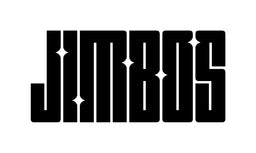Pad Selection 101 – Cut, Finish, and Everything In Between
Your pad is just as important as your polish. Here’s how to choose the right one for swirl removal, finishing, or one-step correction.
If you’ve ever polished your car and didn’t get the results you expected, chances are your pad choice had something to do with it. Whether you’re cutting, finishing, or doing a one-step, the pad you use makes a huge difference in performance and results.
Why Pad Selection Matters
Different pads affect how aggressively the polish cuts, how it finishes, and how it interacts with the paint. Even the best polish won’t perform well with the wrong pad—or worse, it could haze soft paint or leave behind trails.
Types of Polishing Pads
Cutting Pads
These are the most aggressive. They’re designed to remove deep defects, swirls, and scratches. Usually made of firm foam, microfiber, or wool.
- Best for: Heavy correction and compounding
- Use with: Dedicated compounds or pad-dependent one-steps
Polishing Pads
Medium density pads designed for light defect removal and gloss enhancement. These are great for one-step polishes or follow-up refinement.
- Best for: Swirl removal, gloss enhancement, one-step polish jobs
- Use with: Picture Perfect Polish
Finishing Pads
Soft, non-cutting pads used strictly for final polishing, jeweling, or applying sealants and waxes. These won’t remove defects but will maximize gloss.
- Best for: Ultra-soft paint, final polish pass, ceramic coating prep
- Use with: finishing polishes or as a final step with a one-step like Picture Perfect Polish
Pad + Polish = Performance
With a pad-dependent polish like Picture Perfect Polish, the pad you choose determines how much cut you get—and how the finish turns out. Use a cutting pad to remove more defects, or switch to a polishing pad for a refined finish in one pass.
Watch: The Real Difference Pad Selection Makes
Pro Tips for Choosing the Right Pad
- Start with the least aggressive pad that gets the job done
- Switch pad types instead of switching products if you want more/less correction
- Use dedicated pads for each product and purpose—don’t mix
- Clean your pads after every panel or two for consistent results
Recommended Products
- Picture Perfect Polish – One-Step Compound & Polish
- Softer Than Soft Microfiber Towel – Polish & Coating Safe
Related Posts
- The Biggest Polishing Mistakes Most People Make
- Do You Really Need to Clay Before Polishing?
- One-Step Polish vs Compound & Polish – What’s Better?




